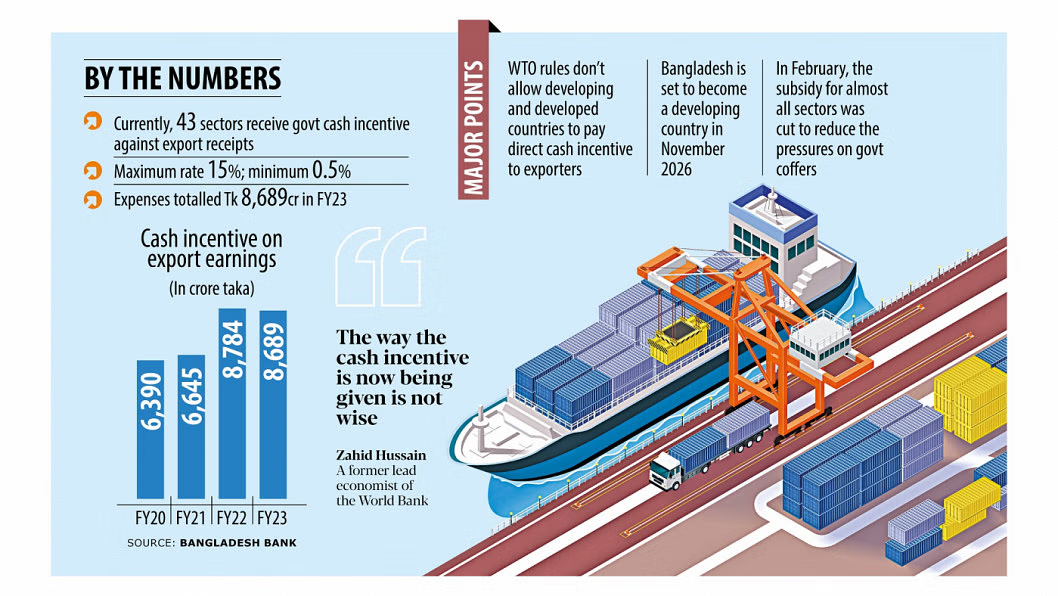Bangladesh’s apparel exports registered a near 50% growth compared to last year – amounting to $3.52 billion – in the first 27 days of June, shrugging off the 40-year high record inflation in the United States and European countries prompted by the Russia-Ukraine war.
The sector also enjoyed an over 1,200% growth year-on-year in a single day during the period, but the shipment also witnessed up to 39% negative growth year-on-year in three days export out of 27 days, said sources at the Bangladesh Garment Manufacturers and Exporters Association (BGMEA).
The BGMEA came up with the calculation based on the National Board of Revenue data as the Export Promotion Bureau (EPB) is yet to make the official announcement.
In July-May of FY22, readymade garment shipment saw about 35% growth to $38.52 billion compared to the same period last year, according to data published by the EPB.
BGMEA President Faruque Hassan told The Business Standard that apparel exports saw a good growth even during the war, as huge orders were booked with the trend expected to continue in the next two months.
He, however, said next year would be tough due to global inflation and recession as some buyers with good inventory would be careful in placing new orders.
The BGMEA president also hoped that this year will be concluded with about 36% growth and the positive growth maintained next year.
“Definitely the industry will try to maintain a double-digit growth,” he added.
Bangladesh Knitwear Manufacturers and Exporters Association (BKMEA) former president Fazlul Hoque said the apparel industry was still enjoying some excess orders shipment benefits owing to increased global demand.
Those additional orders are at the last stage of shipment, but apparel exports will return to the regular trend as Eid Ul Adha will affect exports.
Fazlul Hoque, also managing director of Plummy Fashions Ltd, said the falling price of cotton was also a reflection that there was a fear of inflationary pressure in the global apparel market.
Echoing the BKMEA former president, a leading multinational buying house business head, seeking anonymity, said they also observed the order placement is going slow for the USA and EU markets.
The order placement for Japan and South Korean markets have remained the same growth till now, adding that in a recent visit to Korea he observed that all products prices had increased, except apparels due to the global inflation.
He also feared that this additional pressure might affect consumers’ apparel buying habits.
South Korea’s inflation hit a nearly 14-year high in May due to high energy and food costs due to the ongoing war between Russia and Ukraine.
According to the data of the state-run Statistics Korea, consumer prices jumped 5.4% last month from a year earlier, accelerating from a 4.8% year-on-year spike in April.
The inflation growth also exceeded 5% for the first time since a 5.1% rise in September 2008.
Ashikur Rahman Tuhin, managing director of TAD Group and a former director of BGMEA, said apparel exports might be affected due to the global inflation, but it has a chance of bouncing back during the next Christmas sales.
















